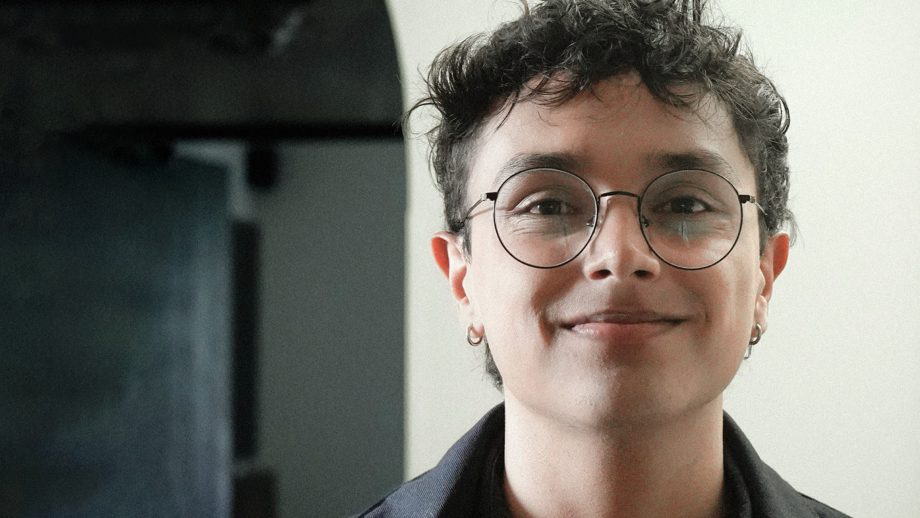Dr. Pauline Greenhill and alum Lou Lamari (BA 2020) examine the animated streaming TV series She-Ra and the Princesses of Power in their recently published, open-access paper, Gender Fluid Heroism in American Children’s Television.
The series goes beyond normative expectations of children’s television to also include a myriad of marginalized identities within its main characters and cast.
Lou Lamari
Referencing scholarship on gender fluidity, Lamari and Greenhill explore how the show represents genders in addition to and beyond male and female.
The project began when Lamari worked as Greenhill’s research assistant in 2019-20 and continued following Lamari’s graduation from the University of Winnipeg with a Bachelor of Arts in Women’s and Gender Studies. This is the second work-study grant Greenhill has been part of that produced a paper in a refereed, peer-reviewed journal.
“It’s such a privilege to work with fab students like Lou and I’m so thankful that the University supports this kind of work,” she said.
Lamari became interested in the project after learning of a Netflix series that introduced to television one of the first characters who explicitly uses they/them pronouns.
“The series goes beyond normative expectations of children’s television to also include a myriad of marginalized identities within its main characters and cast,” said Lamari.
Lamari and Greenhill said that this is very rare. Typically, gender fluidity rarely appears on North American television and remains almost completely absent from programming for children.
While they are seeing transgender characters making inroads into mainstream North American TV for adults, they still find that most depictions of transgender people portray them as aberrations with illegible or unstable identities. Such representations reinforce binaries by making the character exceptional and unconventional or highlighting gender fluidity as a problem.
She-Ra and the Princesses of Power is different.
“The show challenges assumptions about princesses, villains, helpers, and heroes,” said Lamari.
It debuted in 2018 and aired for five seasons leading up to its finale in 2020. Set on the fictional planet Etheria, the story follows a young woman named Adora who finds out she is a princess, destined to lead a rebellion against colonizers who control the planet through fear, imprisoning and killing those who oppose them. But in this universe, not all princesses are white, wear gowns, and live in castles; they possess a variety of physical appearances, races, ethnicities, genders, interests, and housing.
“I was happily surprised by the broad representation of races, ethnicities, and abilities as well as sexes, genders, and sexualities,” said Greenhill.
Through this project, Lamari became acutely aware of the importance of looking at fairy tale media through an academic lens.
“Fairy tales teach children societal values and norms that they grow up with into adulthood,” said Lamari. “Changing the way children’s stories are told impacts the values that adults, and future leaders, hold. It is totally possible to eradicate a lot of bigotry through the stories we teach children and that includes small microaggressions that might not seem immediately harmful.”
Lamari is now studying law at the University of Manitoba on the way to a longer-term goal of building a law practice focused on issues facing queer and trans people.
This research was funded by a Work-Study grant from the University of Winnipeg and by the Social Sciences and Humanities Research Council of Canada, Standard Research Grant 435-2019-0691.
Learn more
Listen to Lou Lamari talk to Faith Fundal on Up to Speed, December 16, 2021




